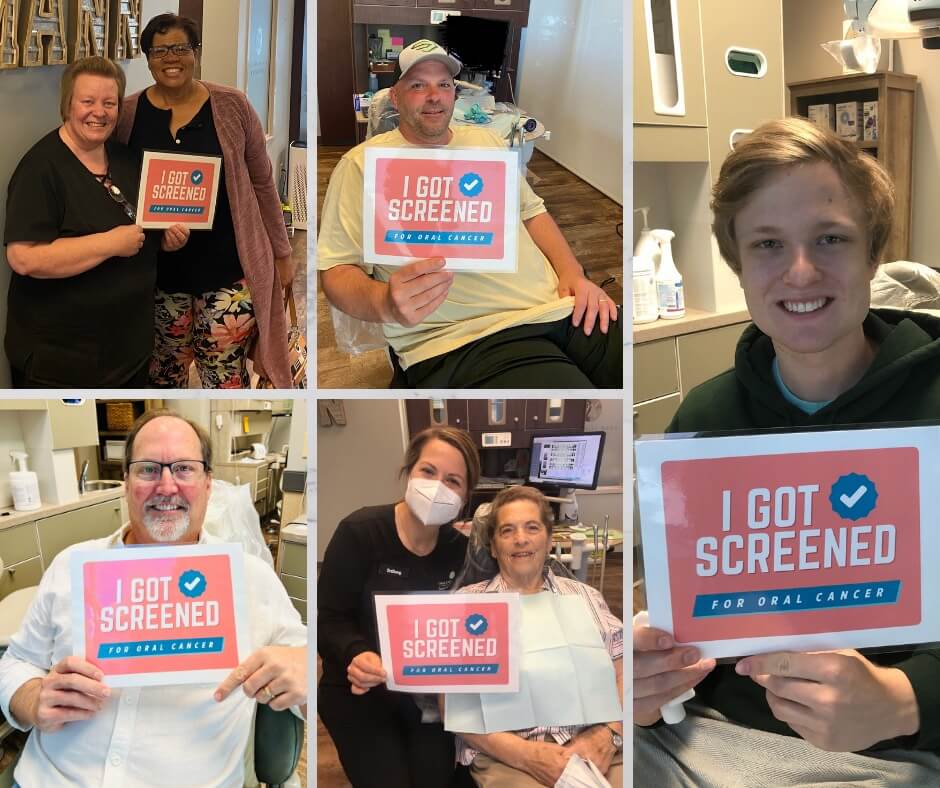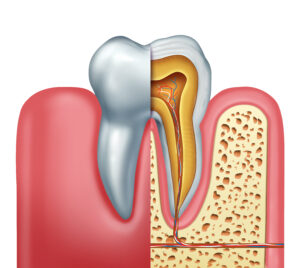Oral Cancer: What You Should Know

April is Oral Cancer Awareness Month, the perfect time to discuss essential facts about this disease with your dentist.
How much do you know about this disease?
It is a form of cancer that is more common than you think.
Cancer…the word alone conjures feelings of helplessness, fear, and worry, but we’re here to guide you through the critical information surrounding oral cancer.
It is a serious condition that can significantly impact a person’s health and well-being.
Like other kinds of cancer, finding oral cancer in its earliest stages is the key to long-term survival.
The American Cancer Society has released its most recent estimates for oral cavity and oropharyngeal cancers in the United States for 2023:
- About 54,540 new cases of oral cavity or oropharyngeal cancer
- About 11,580 deaths from oral cavity or oropharyngeal cancer
- Roughly 1.3 people every hour
Our dental hygiene team at Charles Ashley Mann, DDS & Associates has compiled a list of the most common questions and answers surrounding oral cancer.
1. Where does oral cancer usually start?
Oral cavity and oropharyngeal cancer can occur anywhere in the mouth but is most commonly found on:
- The tongue
- The gums and floor of the mouth
- The oropharynx (throat/tonsils)
Spread awareness about oral cancer by sharing this article with your loved ones.
2. Who is at risk for developing oral cancer?
Unfortunately, anyone can be affected by oral cancer; however, oral cancer rates increase with age.
The increase becomes more rapid after age 50 and peaks between ages 60 and 70.
Other factors that may put you at risk for developing mouth cancer include:
- tobacco use of any kind
- human papillomavirus (HPV)
- alcohol consumption
3. What are some signs or symptoms of mouth cancer?
Performing a self-examination is quite simple!
Watch this video to learn how and check for these signs:
- A lip or mouth sore that doesn’t heal
- A white or reddish patch on the inside of your mouth
- A growth or lump inside your mouth
- Difficult or painful swallowing
- Trouble moving the jaw or tongue
- Numbness of the tongue, lip, or other areas of the mouth
- Jaw pain and/or swelling
- A lump or mass in the neck or back of the throat
4. Can my dental team detect oral cancer?
Although self-examination may help with early detection, regular visits to one of our offices allow our Smilemann team to carry out an examination thoroughly.
At every routine visit, our dental professionals take a few minutes to examine your oral tissues for signs of tissue trauma and oral cancer.
Once per year, we use a special light called a Velscope to examine the tissues in your mouth; this light highlights abnormal tissue that may warrant further investigation.
We can perform a tissue biopsy or refer you to an oral surgeon if further evaluation is needed.
In addition to oral cancer, our dentists look for cavities, gum disease, and other dental issues that may need treatment.
Treating these problems in their earliest stages is easier and less costly.
Because of this, we recommend visiting us every six months for an exam.
Need to schedule your next appointment, call one of our locations:
Final thought
Early detection is crucial for the long-term survival of oral cancer patients.
You can catch any potential issues early by performing regular self-examinations and visiting your dental team at Charles Ashley Mann DDS for routine checkups.
Don’t hesitate to contact us if you notice any signs or symptoms.
Remember, knowledge is power, and taking action can save lives.
So, take charge of your oral health today and stay informed about oral cancer.
To learn more about how we can help, contact us today!
We have three locations: Cary, Garner, and Fuquay-Varina. We also serve Morrisville, Apex, Durham, Holly Springs, Chapel Hill, Carrboro, Holly Springs, Wendell, Raleigh, Angier, and Buies Creek.




